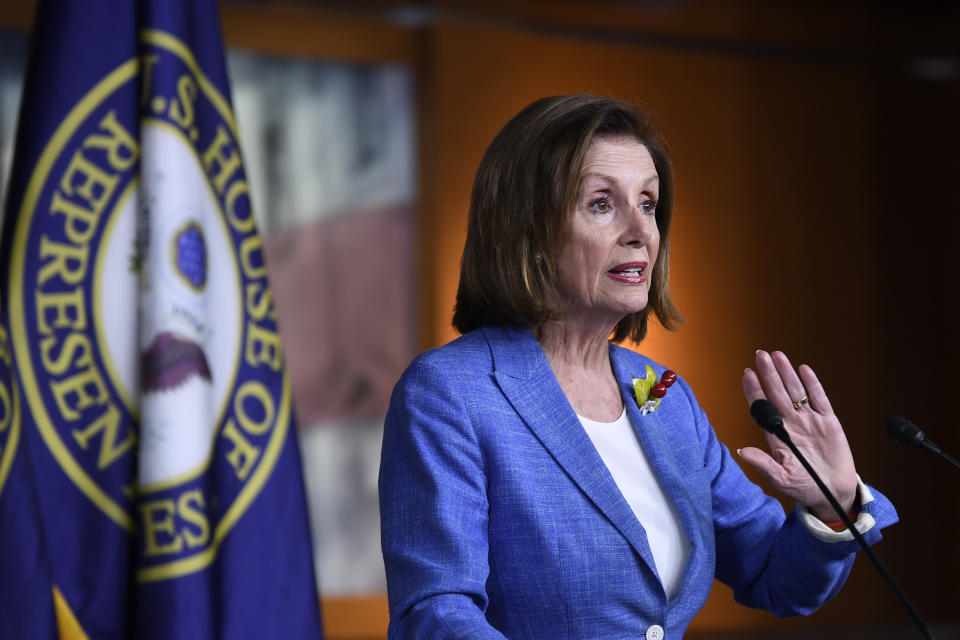Why Trump won’t get another tax cut
The economy is doing “tremendously well” and consumers are “loaded up with money,” according to President Trump. Yet he’s pushing for the kind of economic stimulus measures normally associated with recessions.
Trump has called on the Federal Reserve to slash interest rates and resume the unconventional “quantitative easing” the Fed conducted during the last recession, when the unemployment rate soared to 10%. He’s also considering a new middle-class tax cut to help voters who weren’t helped enough by the giant tax cut he signed into law at the end of 2017. Trump told reporters on August 20 he was interested in a cut in the payroll tax, but wasn’t ready to move just yet.
They payroll tax comes out of every taxpayer’s paycheck and funds Medicare and Social Security. Congress passed a cut in the payroll tax in 2011, during the Obama presidency. That measure lowered the worker’s portion of the payroll tax from 6.2% to 4.2% for two years, putting about $1,000 into the wallet of the average family.
Trump will have a much harder time getting a payroll tax cut through Congress, however, even though Democrats have supported the idea in the past. With Democrats controlling the House of Representatives, Trump would need their agreement to pass a tax cut that would help his reelection odds by boosting the economy a bit. Absent a national emergency, that’s about the last thing Democrats are going to do.
House Democrats unlikely to go along with a tax cut
Trump may think Democrats would have to support a middle-class tax cut, especially in an election year, lest they seem hostile to a majority of voters. But House Speaker Nancy Pelosi is a shrewd operator who has outfoxed Trump before and probably would again.
Pelosi and her fellow Dems would probably embrace the idea of a payroll tax—then ask Trump for a bunch of concessions he couldn’t possibly agree to. In exchange for Trump’s payroll tax, Democrats would need to show their own political base they got something to help their own election odds in 2020. What might that be?
They could agree to a payroll tax cut in exchange for rolling back the 2017 tax cuts for businesses and the wealthy. Or they could ask for a more aggressive estate tax and use the money raised to fund social programs. Or they could insist that the $10,000 cap on the deductibility of state and local income taxes, which hit Democratic states harder than Republican ones, be repealed. They could ask for all of those things.
Agreeing in principle
Would Trump agree? Unlikely. He has passed on bipartisan legislation before, most notably turning down an immigration deal that would have provided funding for border security Trump wants along with provisions Democrats want. The Trump pattern is to make an agreement in principle with Congressional Democrats, then walk it back as Fox News and other conservative media outlets attack him for caving. It would be the same with a tax deal that gave Democrats anything important to them, which is anathema to scorched-earth conservatives.

Democrats might also point out that while they favor a middle-income tax cut, the programs funded by payroll tax—Medicare and Social Security–are running out of money. Medicare is now due to run short in 2026, which means it will no longer be able to cover 100% of the expenses it’s obligated to pay for. Social Security will begin to run short in 2034. It’s not hard to imagine seniors lobbying hard against anything that imperils these two popular programs, giving Dems some additional backbone in negotiations with Trump.
Trump may not even need a tax cut. If he rolled back all the tariffs he has imposed during the last two years, that alone would clear up a lot of uncertainty that’s confounding businesses right now, and give financial markets a boost. And that’s something Trump can control, without Congressional involvement. But abandoning his protectionist trade policy would amount to an acknowledgement that it’s not working, something Trump doesn’t do. So he needs a new policy that might work to counteract an old one that isn’t.
Rick Newman is the author of four books, including “Rebounders: How Winners Pivot from Setback to Success.” Follow him on Twitter: @rickjnewman
Confidential tip line: [email protected]. Encrypted communication available. Click here to get Rick’s stories by email.
Read more:
Elizabeth Warren is a prophet of doom
Why Trump is afraid of the NRA
Democrats are attacking the wrong companies
Everybody running for president is rich
Medicare for all won’t work. This might
Read the latest financial and business news from Yahoo Finance
Follow Yahoo Finance on Twitter, Facebook, Instagram, Flipboard, SmartNews, LinkedIn, YouTube, and reddit.
